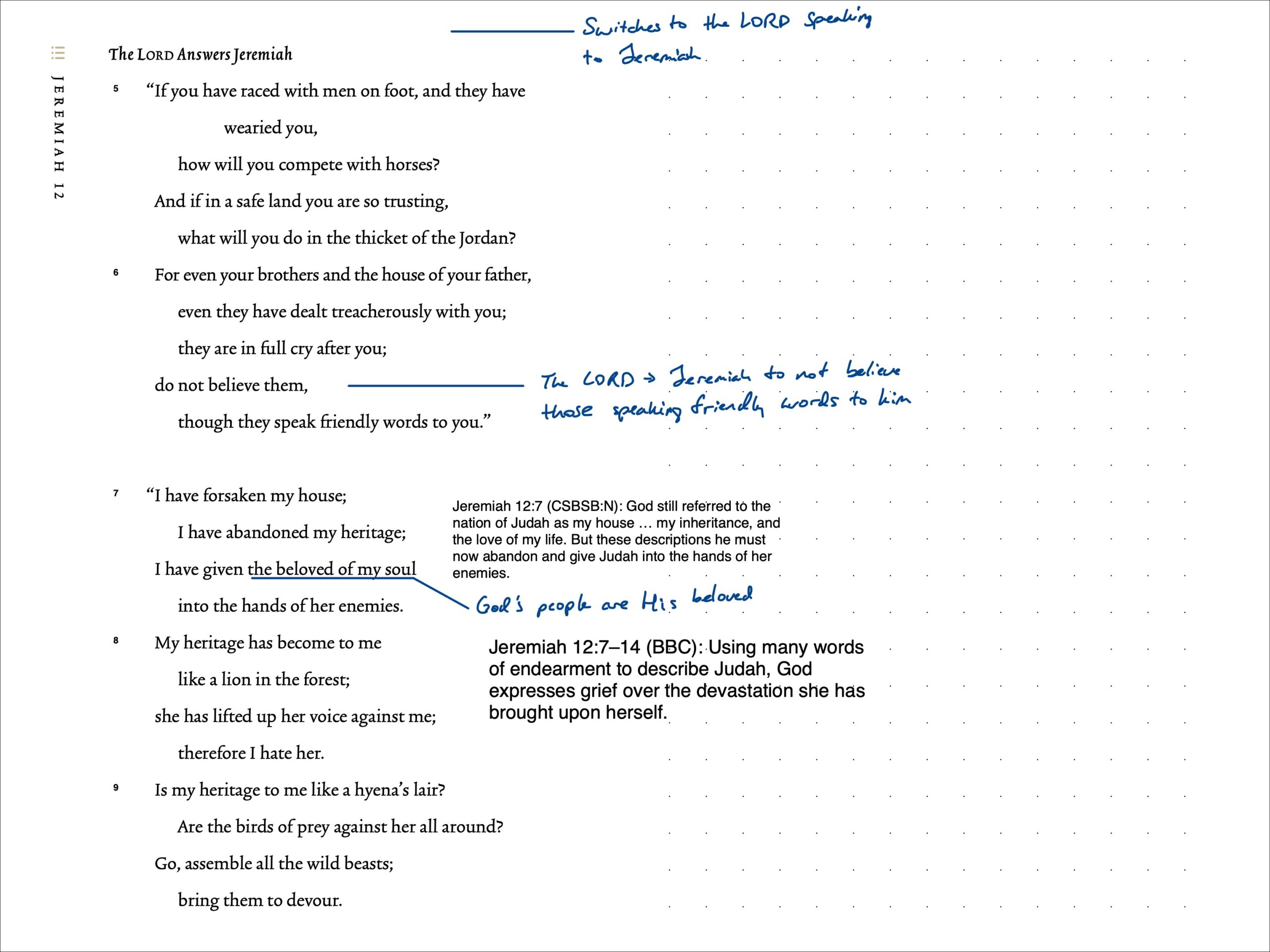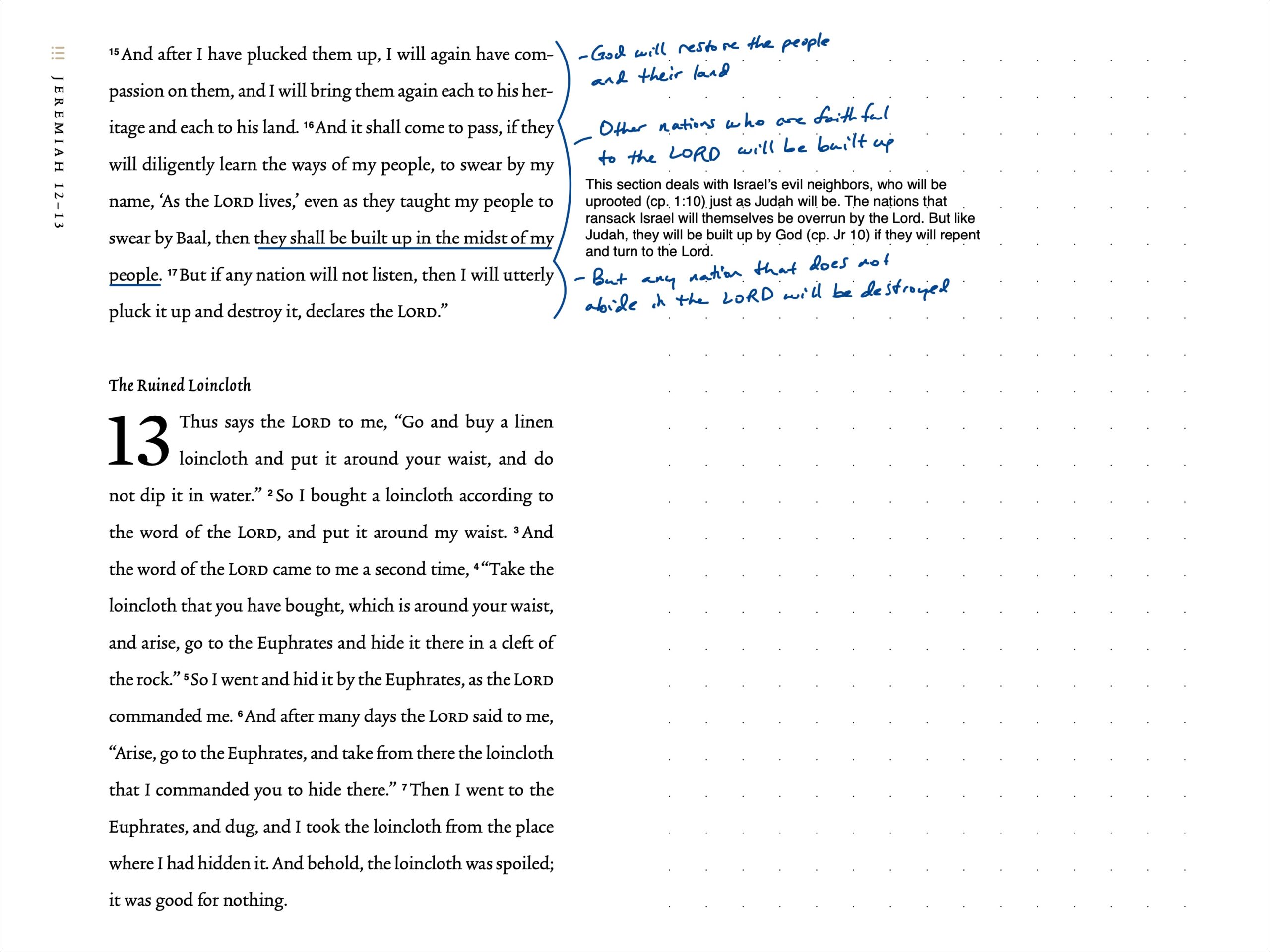| Date | Version | Reading Plan |
|---|---|---|
| @July 4, 2023 | ESV (2016) | ESV Prophets Plan 2023 |
Pericopes
- Jeremiah’s complaint
- The Lord answers Jeremiah
Notes
The chapter opens with a complaint of Jeremiah to the Lord, asking why the wicked prosper in their wrongdoing. Their mouths only speak of faithfulness to the Lord, but their hearts are far from Him (Jer. 12:2). Jeremiah asks the Lord how much longer this must go on (Jer. 12:4).
Starting in Jer. 12:5, we see the Lord’s response to Jeremiah. The Lord acknowledges that even his brothers and the “house of your father” had dealt treacherously with him and that he is not to believe them, “though they speak friendly words to you.” (Jer. 12:6).
In Jer. 12:7, God speaks of having given “the beloved” of His “soul” into “the hands of her enemies.” God still referred to the nation of Judah as His house, inheritance and love of His life. However, He must now sorrowfully abandon these descriptions and give Judah into the hands of her enemies.
In Jer. 12:10, God contrasts the vineyard and pleasant portion that Judah once was with the desolation she had become. Jer. 12:13 describes the resulting Babylonian destruction that will encompass all the land and manifest in poor harvests. It will be “from one end of the land to the other” and “no flesh has peace.”
In the final verses (Jer. 12:14-17), God addresses the other nations that had come down on Judah and that, following the judgment, He would “pluck up the house of Judah from among them” (Jer. 12:14). God will restore the people and their land (Jer. 12:15) and the other evil nations who repent and turn to God will be built up as well (Jer. 12:16). However, any nation that does not abide in the Lord will be destroyed (Jer. 12:17).
Application
While the outpouring of God’s judgment remains abundantly clear in this chapter, His grace is equally revealed. God actions had corrective purpose for not only His people but for other nations that would turn to Him. God is not ignorant to their wickedness, but is instead preparing for a masterful work of redemption.
For us, this shows God’s heart in “not wishing that any should perish, but that all should reach repentance.” (2 Pet. 3:9). Granted, we know not all will accept His invitation, but this by no means negates the universality of its extension. Among those called and even among those not, God’s glory will be extolled as His perfect plan of redemption ushers forth to completion.
Scripture Journal Notes
Commentaries & Resources
- ESV Study Bible. (Wheaton, IL: Crossway, 2008)
- Faithlife Study Bible (Lexham Press, 2016)
- Believer’s Bible Commentary (Thomas Nelson, 2016)
- CSB Study Bible Notes (Holman Bible Publishers, 2017)
- Matthew Henry’s Commentary on the Whole Bible (Guardian Press, 1976)
- The Bible: A Reader’s Guide (Sterling Publishing, 2011)
- The Infographic Bible (Zondervan, 2018)
- ESV Digital Scripture Journal (Crossway, 2019)



